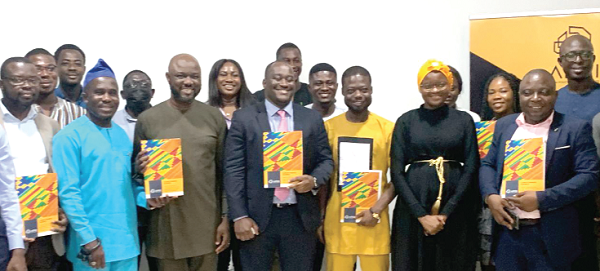
Develop proposal to access funds - Govt, stakeholders advised
State agencies and private sector organisations working on climate issues have been advised to build their technical capacities to be able to put together a proper proposal to access funds.
According to a Senior Visiting Fellow of the Africa Policy Research Institute (APRI), Dr Theophilus Acheampong, most African countries were not able to access funds due to the lack of technical proposals.
Advertisement
He said although Ghana had put together the Nationally Determined Contributions (NDCs) document, there was still a lot of work to be done to package it into a viable investment proposal.
Dr Acheampong, who was speaking during the launch of a Ghana Climate Finance Report in Accra last Tuesday, noted that available funds included the Global Climate Fund.
“Ecobank is also available to disburse monies to support climate mitigation and adoption, while other smaller funds by other philanthropic organisations are also available to be accessed, with a compelling case study and data evidence,” he said.
Report launch
The report was aimed at examining the systems that underpin public climate finance delivery and implementation in Ghana.
It was also focused on building evidence on climate finance needs, challenges and pathways to solutions, while contributing to COP27 discussions by providing empirical evidence to support negotiating positions around equity and fairness in accessing finance.
The research was conducted by the Africa Centre for Energy Policy (ACEP), in collaboration with the Africa Policy Research Institute (APRI), a think tank based in Germany.
It was on the theme “Climate Finance in Ghana: needs, challenges and opportunities to deliver low-carbon and climate-resilient development”.
Findings
Dr Acheampong said limited access to climate funds was the main barrier hindering the country’s access to climate financing.
“The scale of needs versus what is coming in are vastly different - and even the bit that comes has some strings attached to it,” he said.
“To that,” he said, “Ghana, for instance, has been classified as both high risk of external and overall debt distress. Therefore, such funds would add on to Ghana’s fiscal vulnerabilities”.
He said the country was said to require between $9.3billion and $15.5 billion of investment to implement the 47 nationally determined contribution measures from 2020 to 2030.
Recommendations
Dr Acheampong called for past pledges by developed countries to be redeemed to ensure adequate finance to support African climate action.
He also called for the need to establish clear accounting rules and common reporting standards to account for climate finance to allow transparency on the disclosure of climate financing at the global level.
Position
The Executive Director of ACEP, Benjamin Boakye, reiterated the need for stakeholders to position themselves to access funds.
He expressed the hope that the report would open up conversations on how Africa would use credible data to enhance access to financing on the domestic and international fronts.



